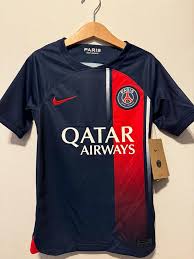The Rise and Influence of PSG in Modern Football

Introduction
The Paris Saint-Germain Football Club (PSG) has become a household name in global football, not just for its trophies but for its influence on the sport’s dynamics. Established in 1970, PSG has escalated to the forefront of football, especially with its recent international signings and strategic leadership.
Recent Achievements
PSG’s dominance in Ligue 1 has been marked by seven league titles in the last decade, including the 2022-2023 season. The club’s ability to attract top talent such as Lionel Messi, Neymar Jr., and Kylian Mbappé has not only enhanced their squad but also broadened their global fanbase. Their on-field success has translated into significant financial growth, making PSG one of the wealthiest football clubs worldwide.
Financial Power and Challenges
PSG’s financial prowess stems from substantial sponsorship agreements and a lucrative television rights deal. In 2022, PSG reported revenue of €700 million, cementing their place as a financial juggernaut in football. However, this financial dominance has also attracted scrutiny regarding financial fair play regulations, leading to potential future challenges as they strive to balance competitiveness with compliance.
Impact on Football Culture
Beyond financial metrics and titles, PSG’s influence extends to the cultural fabric of football. The club’s commitment to social initiatives, including the PSG Academy which nurtures young talent, demonstrates their investment in the sport’s future. Furthermore, their unique branding strategies, including collaborations with fashion brands and celebrities, have reshaped the image of football clubs globally.
Looking Ahead
As football evolves, PSG aims to maintain its competitive edge and cultural relevance. With emerging talents and strategic signings on the horizon, observers predict that PSG will continue to dominate Ligue 1 and aim for European exploits in the UEFA Champions League. Their influential position in contemporary football makes them a focal point for both fans and aspiring clubs seeking success.
Conclusion
In summary, PSG’s role in the football landscape is more than just a series of wins. The club’s impact on financial dynamics, cultural relevance, and youth development is significant. For fans and stakeholders in the footballing world, PSG serves as both a model and a challenge in the ever-evolving sport.









